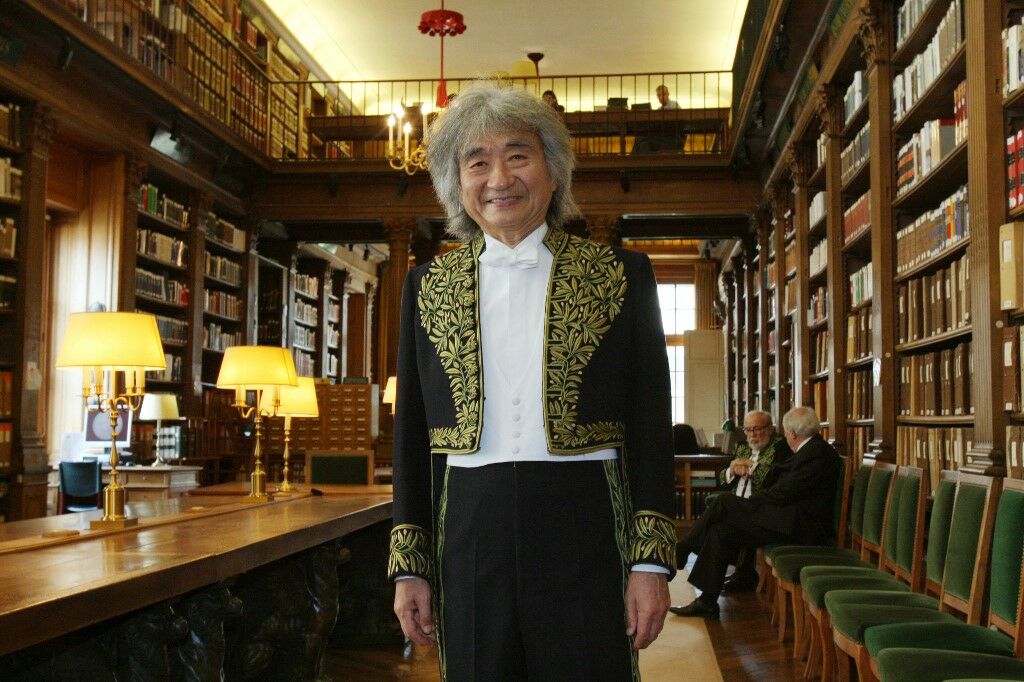Classical music world mourns death of renowned Japanese conductor Seiji Ozawa

Japanese conductor Seiji Ozawa, renowned for his vibrant style and cultural fusion, passed away peacefully at the age of 88 on Tuesday, February 6.
The music maestro, whose career spanned decades, left an indelible mark on the world of Western classical music. From Chicago to Boston to Vienna, Ozawa mesmerized audiences with his East Asian sensibility, infusing his performances with a captivating energy.
The news of Ozawa’s demise was shared by his management team on their official Facebook page.
“Conductor Seiji Ozawa passed away peacefully at his home on February 6 at the age of 88.”
The cause of his death was attributed to heart failure, and his funeral was held by his wishes, and attended by close relatives.
Born in 1935 in Manchuria, a Japanese colony in China at the time, Ozawa initially pursued piano lessons during his early years. However, fate intervened when he suffered a rugby injury, breaking two fingers and altering the course of his musical journey. With an unwavering passion for the art, Ozawa transitioned to conducting, embarking on a path that would bring him face-to-face with some of the greatest luminaries of classical music.
In 1959, Ozawa ventured abroad and found himself in the presence of the esteemed composer and conductor Leonard Bernstein. The young conductor’s talent caught Bernstein’s attention, leading to a pivotal role as his assistant at the New York Philharmonic during the 1961 to 1962 season. This encounter marked the beginning of Ozawa’s remarkable career, which saw him leading orchestras in Chicago, Toronto, and San Francisco.
Of all his achievements, Ozawa’s 29-year tenure as the musical director of the Boston Symphony Orchestra (BSO) stands as a testament to his unparalleled dedication. His impact was so profound that a concert hall at the group’s summer home in western Massachusetts was named in his honour. Ozawa left the BSO in 2002 to take on the role of chief conductor at the Vienna State Opera, a position he held until 2010. The Vienna Philharmonic, with which Ozawa first collaborated at the 1966 Salzburg Festival, expressed their admiration for his loving interaction with his colleagues and his charisma.
Tributes
Andris Nelsons, the current conductor of the BSO, paid tribute to Ozawa, describing him as a great friend, a brilliant role model, and an exemplary musician and leader. Nelsons expressed his deep sense of loss and the profound impact Ozawa had on his musical journey.
Marin Alsop, one of the few celebrated women conductors, acknowledged Ozawa as a great mentor during her time at Tanglewood. Chad Smith, the chief executive officer of the BSO, described Ozawa as a force of nature on and off stage, citing his balletic grace at the podium and prodigious memory, reported Thai PBS World.
The news of Ozawa’s passing has left a void in the hearts of musicians and fans alike. Operatic soprano Christine Goerke, profoundly moved by the opportunity to collaborate with the maestro, expressed her gratitude and sorrow.
“Safe home, Maestro, and thank you.”
Latest Thailand News
Follow The Thaiger on Google News:


























